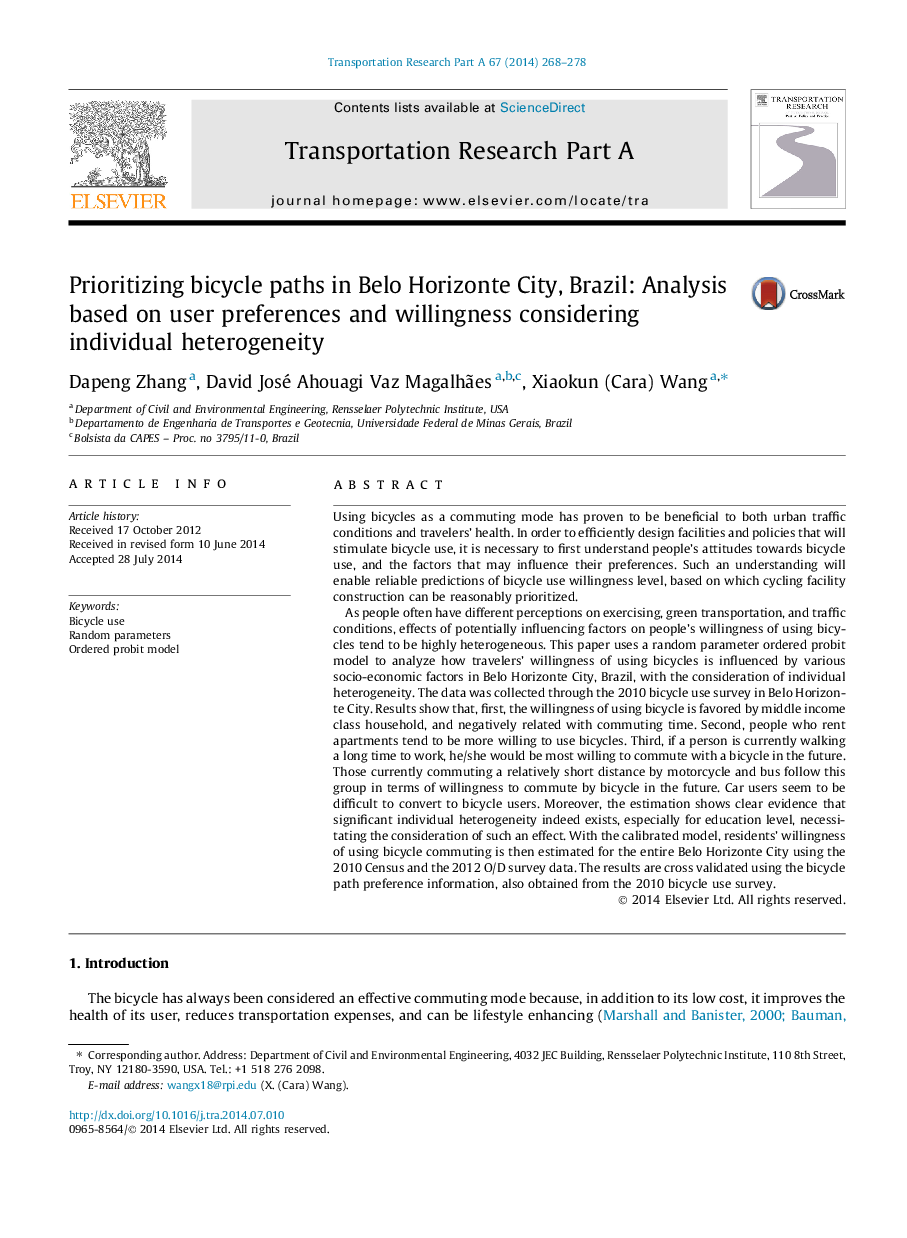| Article ID | Journal | Published Year | Pages | File Type |
|---|---|---|---|---|
| 6781750 | Transportation Research Part A: Policy and Practice | 2014 | 11 Pages |
Abstract
As people often have different perceptions on exercising, green transportation, and traffic conditions, effects of potentially influencing factors on people's willingness of using bicycles tend to be highly heterogeneous. This paper uses a random parameter ordered probit model to analyze how travelers' willingness of using bicycles is influenced by various socio-economic factors in Belo Horizonte City, Brazil, with the consideration of individual heterogeneity. The data was collected through the 2010 bicycle use survey in Belo Horizonte City. Results show that, first, the willingness of using bicycle is favored by middle income class household, and negatively related with commuting time. Second, people who rent apartments tend to be more willing to use bicycles. Third, if a person is currently walking a long time to work, he/she would be most willing to commute with a bicycle in the future. Those currently commuting a relatively short distance by motorcycle and bus follow this group in terms of willingness to commute by bicycle in the future. Car users seem to be difficult to convert to bicycle users. Moreover, the estimation shows clear evidence that significant individual heterogeneity indeed exists, especially for education level, necessitating the consideration of such an effect. With the calibrated model, residents' willingness of using bicycle commuting is then estimated for the entire Belo Horizonte City using the 2010 Census and the 2012 O/D survey data. The results are cross validated using the bicycle path preference information, also obtained from the 2010 bicycle use survey.
Related Topics
Physical Sciences and Engineering
Engineering
Civil and Structural Engineering
Authors
Dapeng Zhang, David José Ahouagi Vaz Magalhães, Xiaokun (Cara) Wang,
